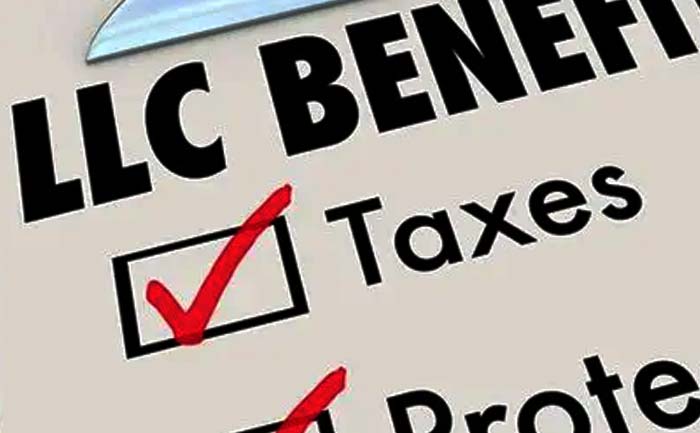When you’re thinking about launching a business, one of the first major decisions you’ll face is where to form your LLC. The state you choose can significantly impact your taxes, regulations, and overall ease of doing business. But with 50 options on the table, how do you pick the right one?
Some states are clear frontrunners thanks to business-friendly laws, while others may offer incentives or tax benefits that fit your specific needs. Let’s dive into the best states to form an LLC in 2024 and help you make a smart choice.
Why Does the State Matter?
Before jumping into the top states, it’s essential to understand why choosing the right state for your LLC matters. Every state has different tax structures, fees, and regulations that will influence your operating costs and legal obligations. For instance, some states offer better asset protection for owners, while others have minimal filing fees or no state income tax.
Additionally, your LLC’s location can impact how customers perceive your business and even affect employee retention. After all, a favorable tax environment and fewer regulations can lead to higher profits, allowing you to offer more competitive salaries and benefits that increase employee retention.
Delaware: The Tried and True
Delaware has long been considered the gold standard for forming an LLC. One of the primary reasons is its well-developed and business-friendly legal system, which includes the renowned Court of Chancery. This court specializes in corporate law, offering faster resolutions to disputes and business-related legal issues. Moreover, Delaware doesn’t tax out-of-state income, which can be a game-changer if you’re doing business primarily outside of Delaware.
Key Benefits:
- No sales tax
- Minimal corporate income tax if doing business outside of Delaware
- Strong legal framework for businesses
- Confidentiality for LLC members and owners
However, if your business is operating entirely in another state, keep in mind that you’ll need to pay for registration in your home state in addition to Delaware’s fees.
Wyoming: Low Costs and Privacy
Wyoming is quickly becoming a favorite for entrepreneurs, especially for those looking for low costs and strong privacy protections. It was the first state to allow LLCs back in 1977, and since then, it has continued to innovate. One standout benefit is that Wyoming doesn’t have a state income tax, which can significantly lower your overall business costs.

Key Benefits:
- No state income tax
- Low filing fees and annual costs
- Privacy protections for LLC owners (no public disclosure of ownership)
- No need for annual reports in certain cases
Wyoming also boasts one of the most straightforward processes for forming an LLC, making it an excellent choice for startups or online businesses that need to be nimble.
Nevada: Tax-Friendly with Strong Asset Protection
Nevada has positioned itself as another top choice for forming LLCs thanks to its zero state income tax, franchise tax, and low fees. Beyond its tax benefits, Nevada offers some of the strongest asset protection laws in the country. This is particularly important for business owners looking to safeguard their personal assets from business liabilities.
Key Benefits:
- No state income, corporate, or franchise tax
- Strong protection of personal assets against business liabilities
- No information-sharing agreements with the IRS
- Privacy for LLC owners
Nevada is ideal for companies involved in higher-risk industries or those who want an added layer of legal protection.
Texas: Big Benefits in the Lone Star State
Everything’s bigger in Texas, including the benefits of forming an LLC. Texas offers a low-cost, business-friendly environment with no personal or corporate income tax. While Texas does have a franchise tax for larger businesses, many smaller LLCs fall below the threshold and aren’t subject to it.
Key Benefits:
- No personal or corporate income tax
- Low filing fees
- A large, diverse economy and customer base
- Favorable regulations for business owners
Texas also has a booming economy, which can help businesses tap into a large and growing customer base. For entrepreneurs looking to grow quickly, Texas is an excellent option.
Florida: A Sunshine State for Entrepreneurs
Florida is a popular choice for many reasons, not least because of its warm climate and bustling economy. It’s also very business-friendly, with no state income tax and relatively low filing fees for LLCs. Florida also has a strong tourism industry, making it a great choice if your business caters to tourists or is part of the hospitality sector.

Key Benefits:
- No state income tax
- Low filing fees
- Growing economy and large population
- Access to a large, diverse customer base
One downside is that Florida does require annual reports and fees, which may add to your administrative costs, but the overall business climate makes it worth considering.
Choosing Wisely for Long-Term Success
When deciding where to form your LLC, it’s important to weigh the costs, tax advantages, and legal protections offered by each state. If your business is entirely online or operates across multiple states, a state like Delaware, Wyoming, or Nevada may offer the most benefits. However, if you have a physical location and a specific customer base, forming your LLC in your home state could simplify things and keep your costs down.
Setting Your Business Up for Success
In 2024, forming an LLC in a business-friendly state can make a big difference in your long-term success. Whether you’re drawn to Delaware’s strong legal framework, Wyoming’s low fees, or Nevada’s tax advantages, the right choice depends on your business model and goals. The right environment not only reduces overhead but can increase employee retention, making your business more attractive to top talent. So, take the time to research, weigh your options, and set your business up for lasting success.

Alfie Wilson, Esq., is a legal content writer with expertise in business formation, criminal law, veterans disability, family law, DUI law, personal injury, animal welfare, and legal writing. He holds a J.D. from Emory University School of Law and has experience in appellate advocacy and regulatory matters. Alfie’s passion lies in breaking down complex legal topics for a non-lawyer audience. He currently writes for law firms and non-profits on various issues and resides in Arlington, Virginia.






